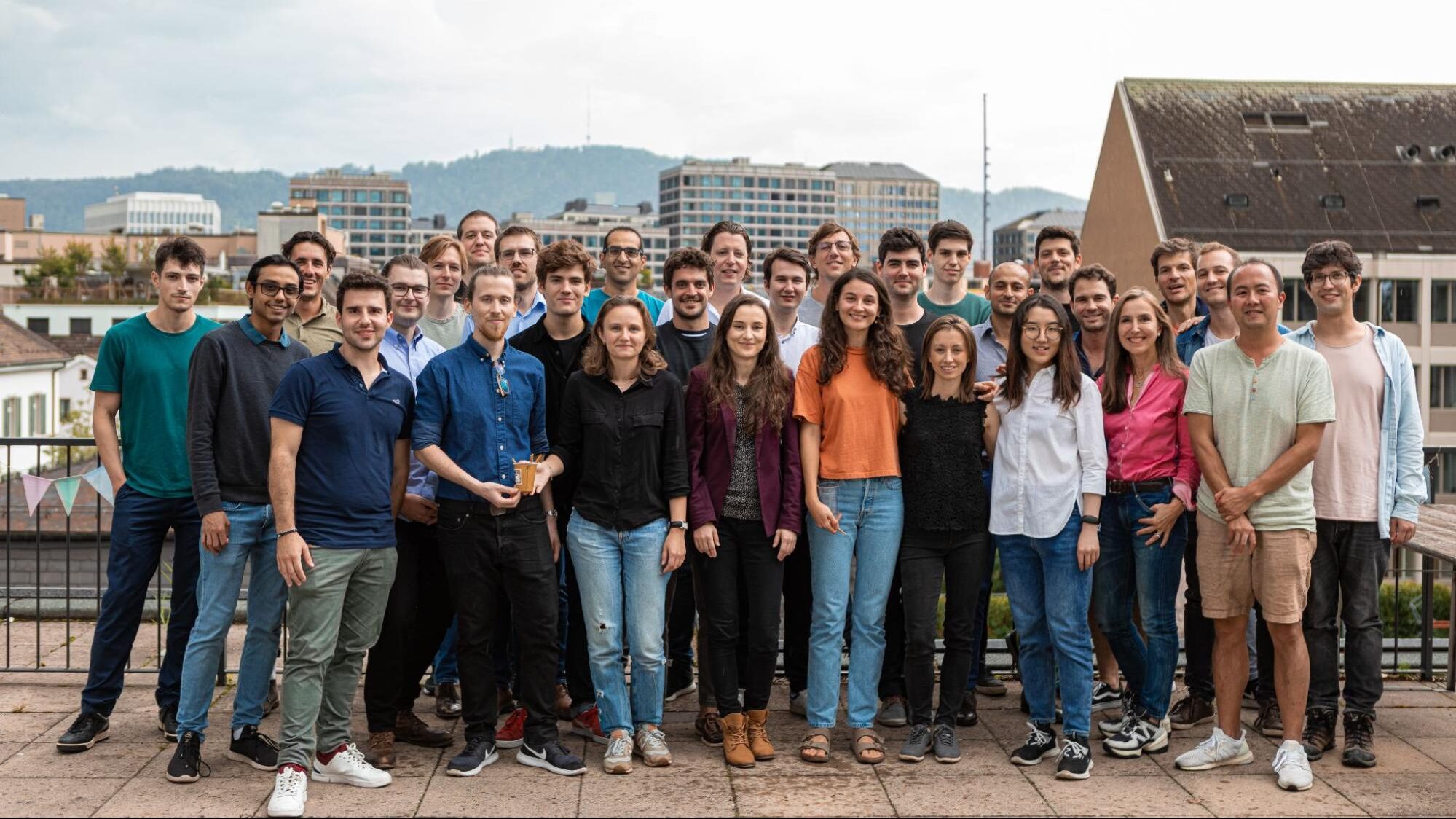The market for startup jobs has evolved rapidly, explains Lukas Rippitsch from Speedinvest Heroes. The problem for startups is that almost any role is difficult to hire and that candidates need a certain mindset. But who exactly is the perfect hire for a startup?

Managing Partners, Speedinvest Heroes
Lukas leads Speedinvest Heroes, a data-driven HR firm focussing solely on startups as clients. The company has offices in Vienna and Berlin and more than 1000 open positions across Europe on its startup job platform wecanbeheroes.io. Verve Ventures works closely with Speedinvest Heroes to help portfolio companies hire key roles. Lukas has more than 10 years of experience in data analysis and profiling and is a serial founder himself. His Master’s degree in Economics from Vienna University of Economics and Business built the groundwork for this.
How did you come to the field of recruitment?
By accident. I have a background in data science and statistics and was co-founder of a startup that did search engine optimization based on data. When I left the startup after an exit, Maria Baumgartner asked me if I wanted to join Speedinvest Heroes, which at that time was very much focused on working solely for the Speedinvest portfolio, acting as an internal HR platform team. And so I did.
What has changed since then?
Speedinvest Heroes is now an independent company and has grown to more than 35 employees and about a dozen freelancers. We work with startups and a number of different venture capital firms, including Verve Ventures. We have two business units, one is consulting and the other is software development. We build job platforms and an app solution to better engage candidates in the recruiting process and coach them through their careers. On the B2B side the startups have direct access to different candidate channels – a bit like Tinder for recruiting
Why focus on startup jobs only?
Because this allows us to stay credible in front of our candidates, and we are good at finding the right people for startups. We only work with innovative companies that have a tech background and are led by founders. We don’t work with innovation departments of big companies, and also not with big corporations, even if they’d like to hire people with a startup mentality and would pay well.
How is it the other way around, it seems that more and more people who have had a successful career in big companies would like to work for cool startups. Does that work?
No, it never does. People who have 25 years of experience and earn hundreds of thousands might have a nice network, but their expectations are too high, and the way they are used to work has nothing to do with working in a startup. In a startup, you need doers, not managers. Even if these people think they’re flexible, they wouldn’t survive more than a few months. A startup lacks structures, everything changes in a matter of weeks, there are no clear lines of command and stability. Corporate executives aren’t suited for this environment in the early days of a startup organization.
Then who is?
People who enjoy building something and advance rapidly. Talent with a highly flexible thinking style as well as a strong emotional bond with their work will thrive in a startup environment. In general, the learning curve in startups is steeper than in any other environment. But, especially at the beginning, you cannot have high fixed costs, which makes it more challenging for people with a family to feed.
Speedinvest Heroes is active mainly in the DACH region and expanding eastwards. What market dynamic do you observe in the startup job market?
In the past few years, the number of startup jobs has risen considerably. The startup industry in Europe has become a lot stronger, with more business creation and more capital flowing to startups. So, the whole startup ecosystem has evolved and so have the different hubs. There are more unicorns and more role models for people to follow. And so the DACH region has become more attractive for talent, with Berlin as a major magnet, but Vienna and Zurich have also become home to larger scale-ups.
How much has Covid slowed down the market?
It has reduced the appetite of people who felt safe at their current job to look for new ones, and startups concentrated on hiring key roles. But since this spring, startups are back in hiring mode, looking for whole teams, and the number of open roles has multiplied. For some roles it is almost impossible to find suitable candidates.
Which roles are particularly difficult to hire for?
Tech roles aren’t the most pressing problem anymore, as most startups hire software engineers from all over Europe, from Porto to Sofia. The big problem is salespeople with experience. Their network is by definition geographically limited. If you need a B2B SaaS salesperson that knows a lot of customers in Southern Germany then your candidate pool will be very limited. Not only that, but a startup will compete for these few candidates with the tech giants such as SAP or Netflix which pay 40% – 100% above market salary for such people. Once, one of my colleagues almost despaired because she couldn’t fill such a role, and eventually, when she did, we opened a bottle of champagne in the office. That’s how hard it is.
Any other roles that are challenging to find?
Most underestimate what it means to find a suitable office manager. You want someone who is fluent in English because German alone won’t suffice in a startup. And you want someone who thinks along. But you don’t really have a budget for that role. This combination can be fatal. Whereas you can find a good front-end developer in 4 weeks, a good office manager might take 4 months. Other than that, there are of course leadership roles in specific areas of technology that are harder to find than the average.
You mentioned that startups hire remote workers to tap into talent pools across Europe. How established is this already?
Remote working is clearly a trend, but there is no consensus on what that actually means. Some companies don’t even have an office and their people are dispersed all over the world. Others tell employees they can work from their home office 4 days per month, which isn’t very modern. We live in a world where constant availability is a given, no matter where you are. Nevertheless, most employees appreciate meeting their team members or clients in an office. But offices need more space to meet and work together instead of just tables to sit at. It has become very difficult to assess how much space you really need, when the office is empty on Monday and on Wednesday, people are sitting on the floor. At the moment, it seems like everyone is just doing what they want, which is chaotic. There should be a policy that guides people. Being together in an office strengthens the human bonds, enables lateral learning, and gives the employer a chance to gauge how the employees are feeling. How can you build up loyalty to an employer if you visit the company just once per month? This question is especially important for new employees. Unlike those who have been around since the beginning, they need to establish their social network in the workplace.
What is the challenge of hiring employees in other countries?
In addition to what I already mentioned, there are boring bureaucratic hurdles that many startups don’t think about. You can’t just have freelancers in Germany working 100% for your startup, you need to hire them. That is not a problem, but to do so, you need to have a legal entity in Germany. In large companies, these things are managed, but startups lack the sophistication for such administrative work and often do it wrong. Often, these things are only discovered by professional investors in later funding rounds. The fundamental problem is that every European country has its own rules and that there is no harmonization across the EU.
The perfect candidates for a startup position, do they exist?
No. What we call a startup is a very different beast depending on what stage the startup is in, Pre-Seed, Seed, Series A, B, or later. A startup that has passed the Series B is on its way to becoming a steady company. The team leads and structures are in place, new joiners will find guidance and established workflows, almost like in a multinational. We use psychometric tests to assess if someone is a fit in the more chaotic world of an early-stage startup.
What do such tests tell us about the potential fit of a candidate?
One important point to remember is that people are either more structured or more flexible in their thinking style, which is one of the parameters we are interested in. This flexibility relates to the ability to switch between tasks and adapt to new situations rapidly, but most importantly, to the ability to find solutions on the way. The high performers in the structured thinking style perform very well in bigger organizations but will not feel comfortable in these environments. Secondly, there is the distinction between doers/experts and generalists. In early phases, you need people who execute, have a clear role while in later phases, generalists – who are mediators between the expert groups are more important.
What about typical founders, how would they score in a psychometric test?
They typically score low on norm orientation. They want to break rules, not follow them. People who score high on norm orientation usually do well in classical corporations. Those who follow the rules get promoted. It needs special traits to build a company when the people that surround you are telling you that this will never work. Founders are stubborn and this is what we want – of course, they also score high on emotional intelligence and learning abilities – otherwise, their team will not stay and they won’t be able to evolve from first ideas to commercially successful products.
Written by
WITH US, YOU CANCO-INVEST IN DEEP TECH STARTUPS

Verve's investor network
With annual investments of EUR 60-70 mio, we belong to the top 10% most active startup investors in Europe. We therefore get you into competitive financing rounds alongside other world-class venture capital funds.
We empower you to build your individual portfolio.
More News
09.11.2021
Pathoquest
raises EUR 15m
Series B
PathoQuest, a pioneer in the quality control of biologics using Next-Generation Sequencing (NGS), today announced the closing of a financing round up to €15M. This funding leverages the NGS technology in a proprietary approach to assess the viral safety and genetic characterization of biologics. It will support the development of PathoQuest's US site (Wayne, PA), the expansion of the portfolio of NGS-based quality control tests and will accelerate its growth and market share worldwide.
19.10.2021
Seervision raises
CHF 3.7 Mio.
to accelerate
market expansion
ETH spin-off Seervision successfully completed a financing round earlier this year led by Verve Ventures, along with Athens-based VC Metavallon, the EIC Fund, Zürcher Kantonalbank and existing investors.
09.07.2020
How food startup yamo found
the right formula
Having a yummy product is always a good starting point. And if it fits well with the megatrend of healthy living, that’s even better. But a key element to the success of a brand is distribution. The story of food startup yamo, which just raised EUR 10.1 million, offers some valuable lessons.
Startups,Innovation andVenture Capital
Sign up to receive our weekly newsletter and learn about investing in technologies that are changing the world.




